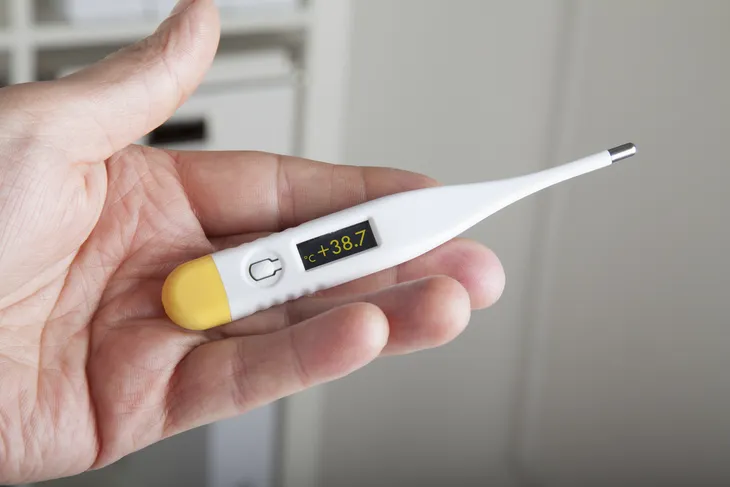Appendicitis results when the worm-shaped pouch attached to the large intestine, known as your appendix, is inflamed. Appendicitis is considered threatening if the inflammation is left untreated and the appendix ruptures, or bursts. Should the inflamed appendix burst, it will leak infectious waste into the abdominal cavity and cause a fatal condition known as peritonitis (inflammation of the peritoneum, which is the lining of the abdominal cavity), which must be surgically removed and treated with strong antibiotics extremely quickly.
Here are the six most common signs and symptoms of appendicitis…
1. Abdominal Pain
According to Dr. Michael Payne, a gastroenterologist at the Harvard-affiliated Cambridge Health Alliance, appendicitis is difficult to diagnose. Dr. Payne explains that although appendicitis is “a very common illness…many people don’t have classic symptoms” aside from abdominal pain.
This pain is also often described by patients as a sharp pain that’s located near the navel and moves to the lower right abdomen and intensifies very quickly. This pain often worsens with jarring (i.e., coughing) or movement. Medical professionals usually diagnose appendicitis via an abdominal computed tomography (CT) scan.
2. Gas and Bloating
Appendicitis often causes unexplained difficulty passing gas and abdominal bloating, which can cause a painful and severely swollen abdomen. This gas and bloating is similar to indigestion, but without reason (i.e., no meatball subs in sight).
If the gas and bloating cause lower right abdominal pain, difficulty sleeping, and gradually worsen rather than improve over a day or so, you may be suffering from appendicitis.
3. Loss of Appetite
Loss of appetite will often accompany discomfort from the bloating, gas, and abdominal pain/swelling. After all, who wants to chow down when they’re experiencing abdominal pain?
However, if you’re also experiencing mild diarrhea containing mucus, along with gas, bloating, abdominal pain, and nausea, you may be experiencing appendicitis.
4. Nausea
With gradually increasing abdominal pain, appendicitis often causes mild nausea with vomiting sometimes close behind, which very similar (and sometimes misinterpreted) to a stomach bug.
However, unlike the stomach flu, appendicitis will not improve in a few days time. If the abdominal pain, nausea, and vomiting worsen with time, it’s time to seek out emergency attention.
5. Low Grade Fever
Appendicitis can also cause a flu-like, low grade fever that can reach between 100.4- and 102-degrees Fahrenheit.
The fever is often accompanied by chills, clammy skin, nausea, and abdominal pain so severe that you can’t stand upright.
6. Rebound Pain
According to Health.com, many patients complain of rebound tenderness in their lower-right abdominal region with appendicitis. Rebound tenderness results when pressure is placed on the abdominal area and the pain increases when released.
This appendicitis-related pain is often accompanied by the other symptoms, such as chills, bloating, fever, nausea, and vomiting.









